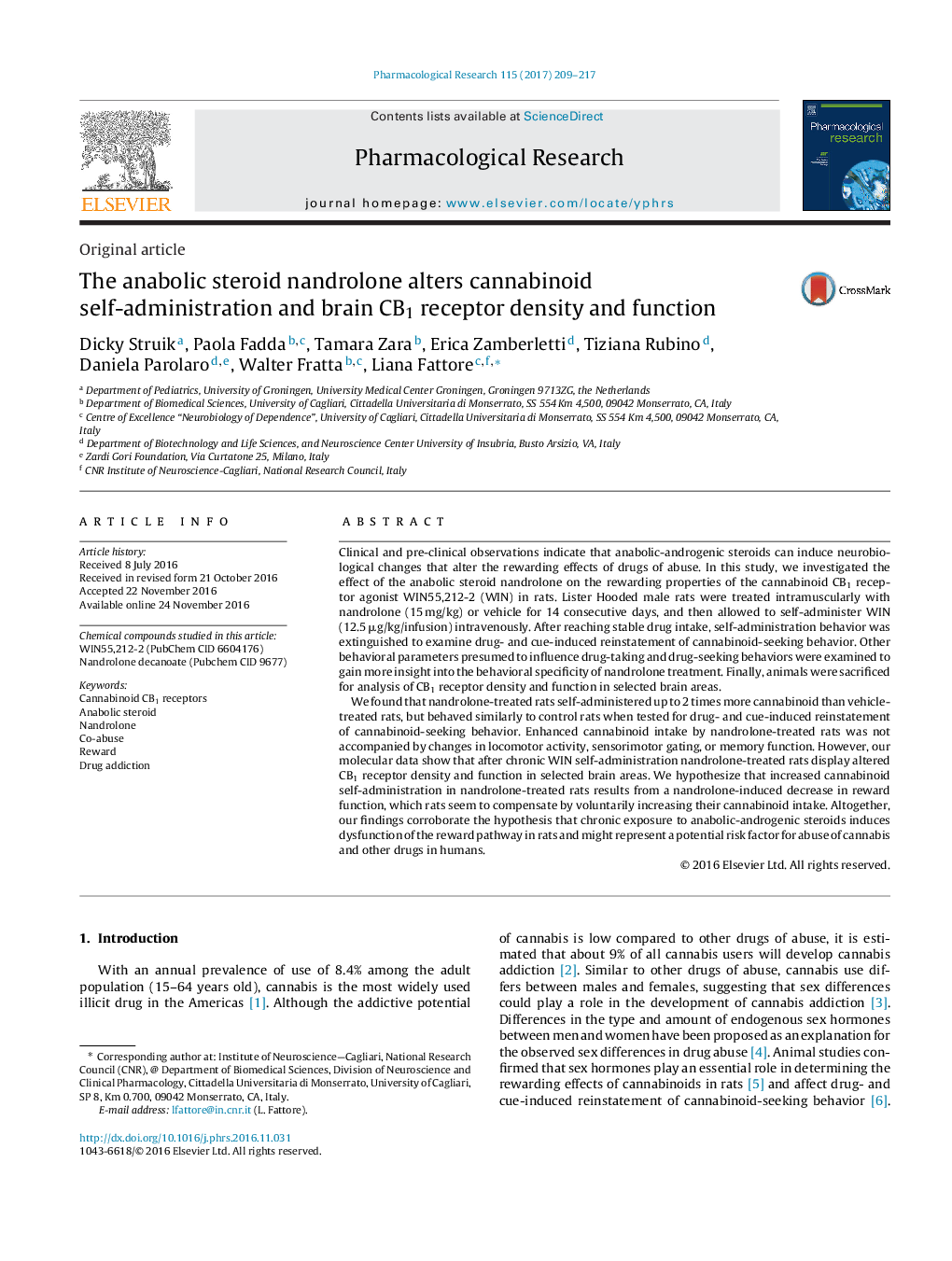| کد مقاله | کد نشریه | سال انتشار | مقاله انگلیسی | نسخه تمام متن |
|---|---|---|---|---|
| 5557533 | 1560826 | 2017 | 9 صفحه PDF | دانلود رایگان |

Clinical and pre-clinical observations indicate that anabolic-androgenic steroids can induce neurobiological changes that alter the rewarding effects of drugs of abuse. In this study, we investigated the effect of the anabolic steroid nandrolone on the rewarding properties of the cannabinoid CB1 receptor agonist WIN55,212-2 (WIN) in rats. Lister Hooded male rats were treated intramuscularly with nandrolone (15 mg/kg) or vehicle for 14 consecutive days, and then allowed to self-administer WIN (12.5 μg/kg/infusion) intravenously. After reaching stable drug intake, self-administration behavior was extinguished to examine drug- and cue-induced reinstatement of cannabinoid-seeking behavior. Other behavioral parameters presumed to influence drug-taking and drug-seeking behaviors were examined to gain more insight into the behavioral specificity of nandrolone treatment. Finally, animals were sacrificed for analysis of CB1 receptor density and function in selected brain areas.We found that nandrolone-treated rats self-administered up to 2 times more cannabinoid than vehicle-treated rats, but behaved similarly to control rats when tested for drug- and cue-induced reinstatement of cannabinoid-seeking behavior. Enhanced cannabinoid intake by nandrolone-treated rats was not accompanied by changes in locomotor activity, sensorimotor gating, or memory function. However, our molecular data show that after chronic WIN self-administration nandrolone-treated rats display altered CB1 receptor density and function in selected brain areas. We hypothesize that increased cannabinoid self-administration in nandrolone-treated rats results from a nandrolone-induced decrease in reward function, which rats seem to compensate by voluntarily increasing their cannabinoid intake. Altogether, our findings corroborate the hypothesis that chronic exposure to anabolic-androgenic steroids induces dysfunction of the reward pathway in rats and might represent a potential risk factor for abuse of cannabis and other drugs in humans.
107
Journal: Pharmacological Research - Volume 115, January 2017, Pages 209-217